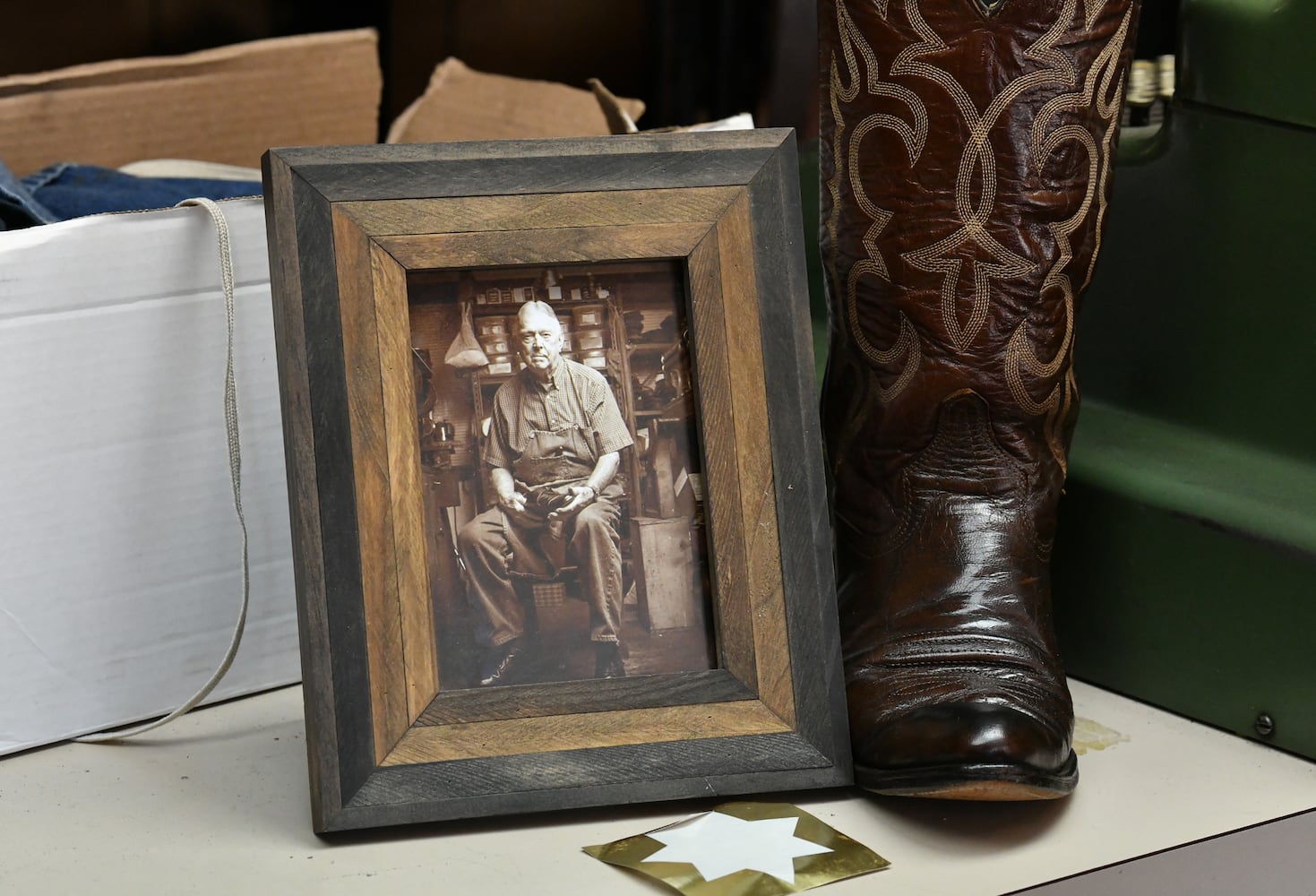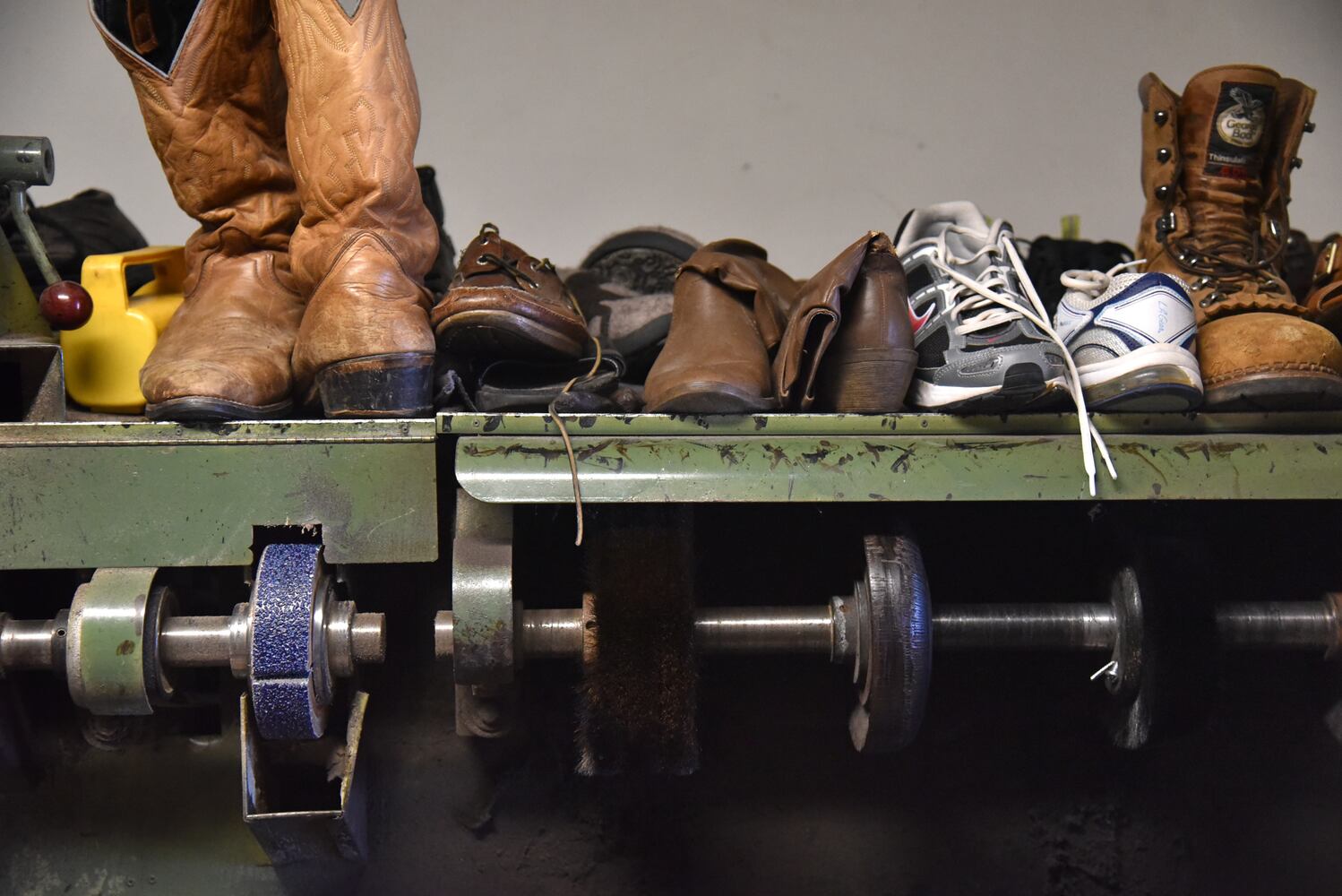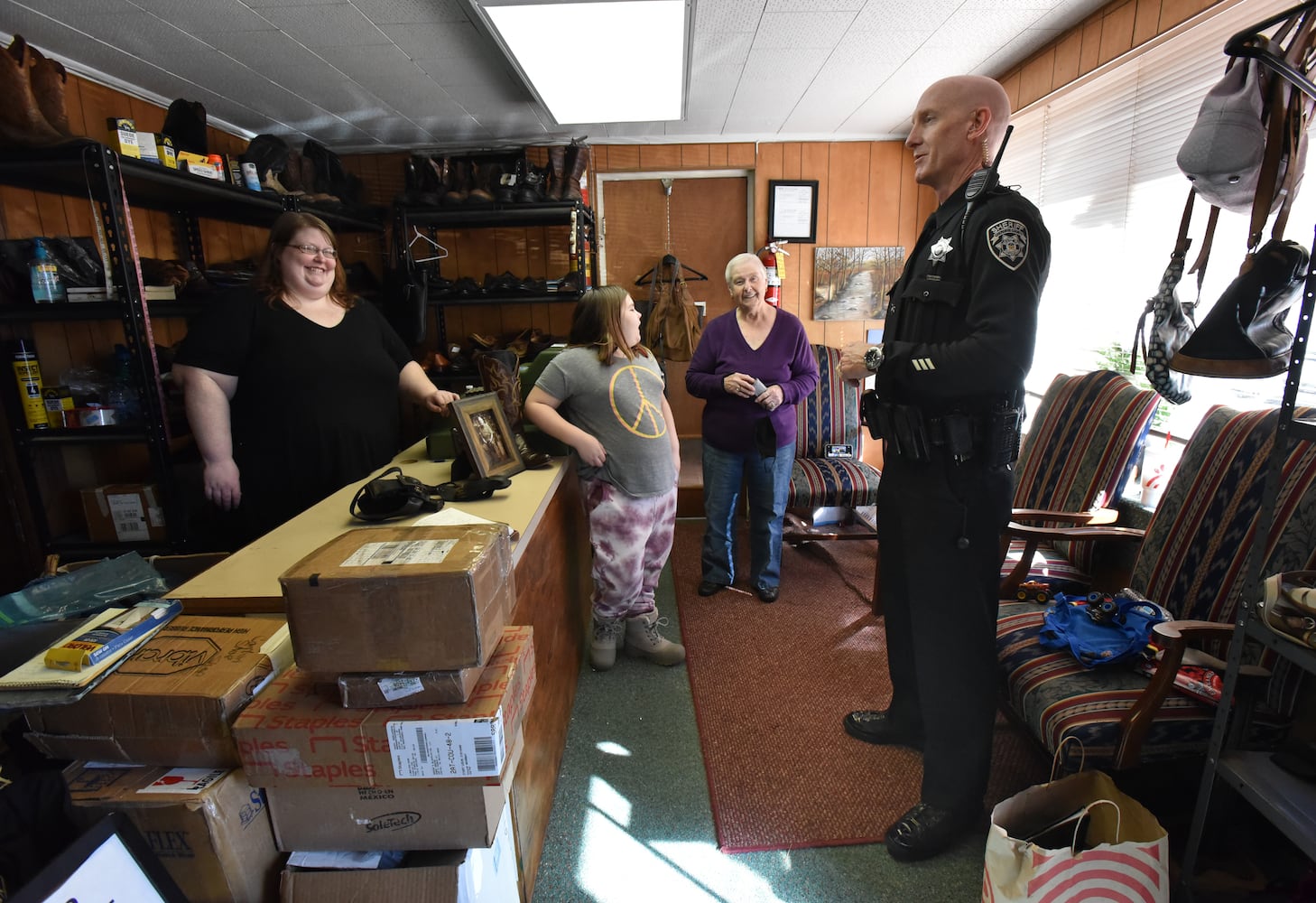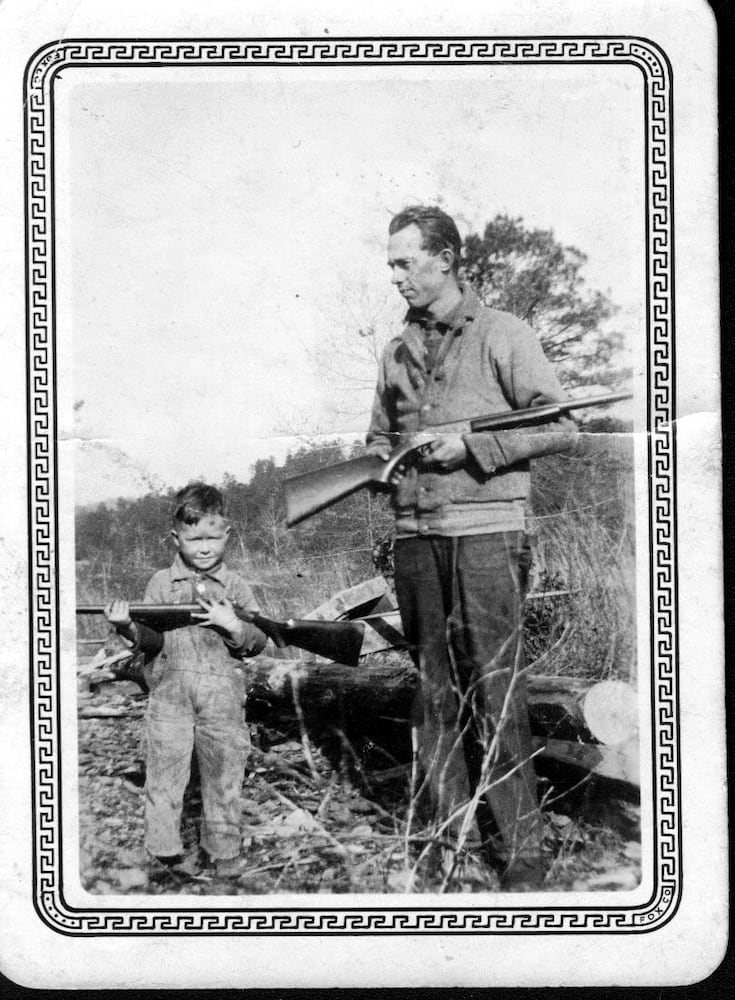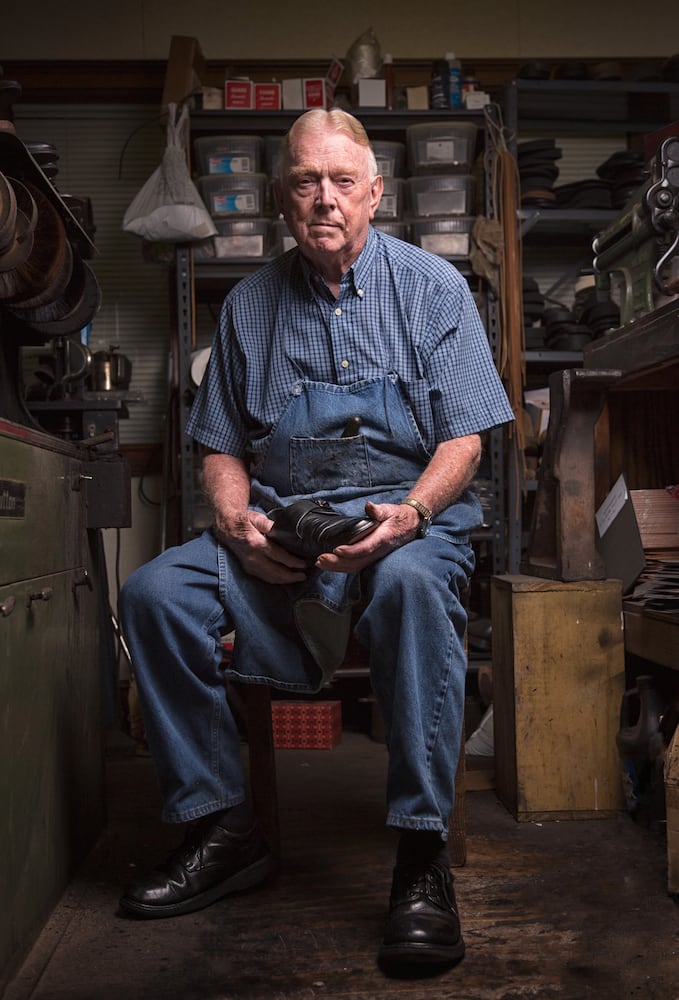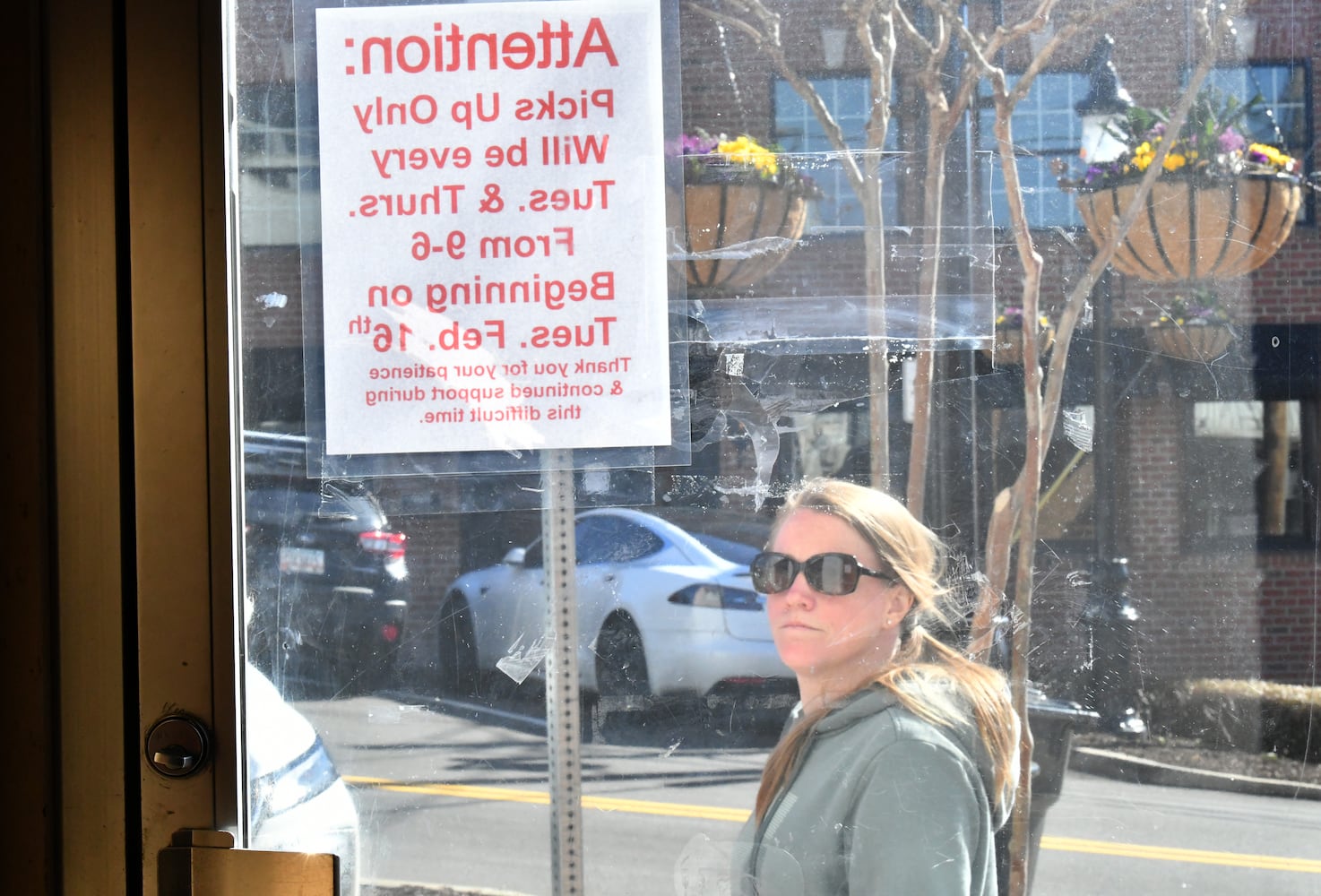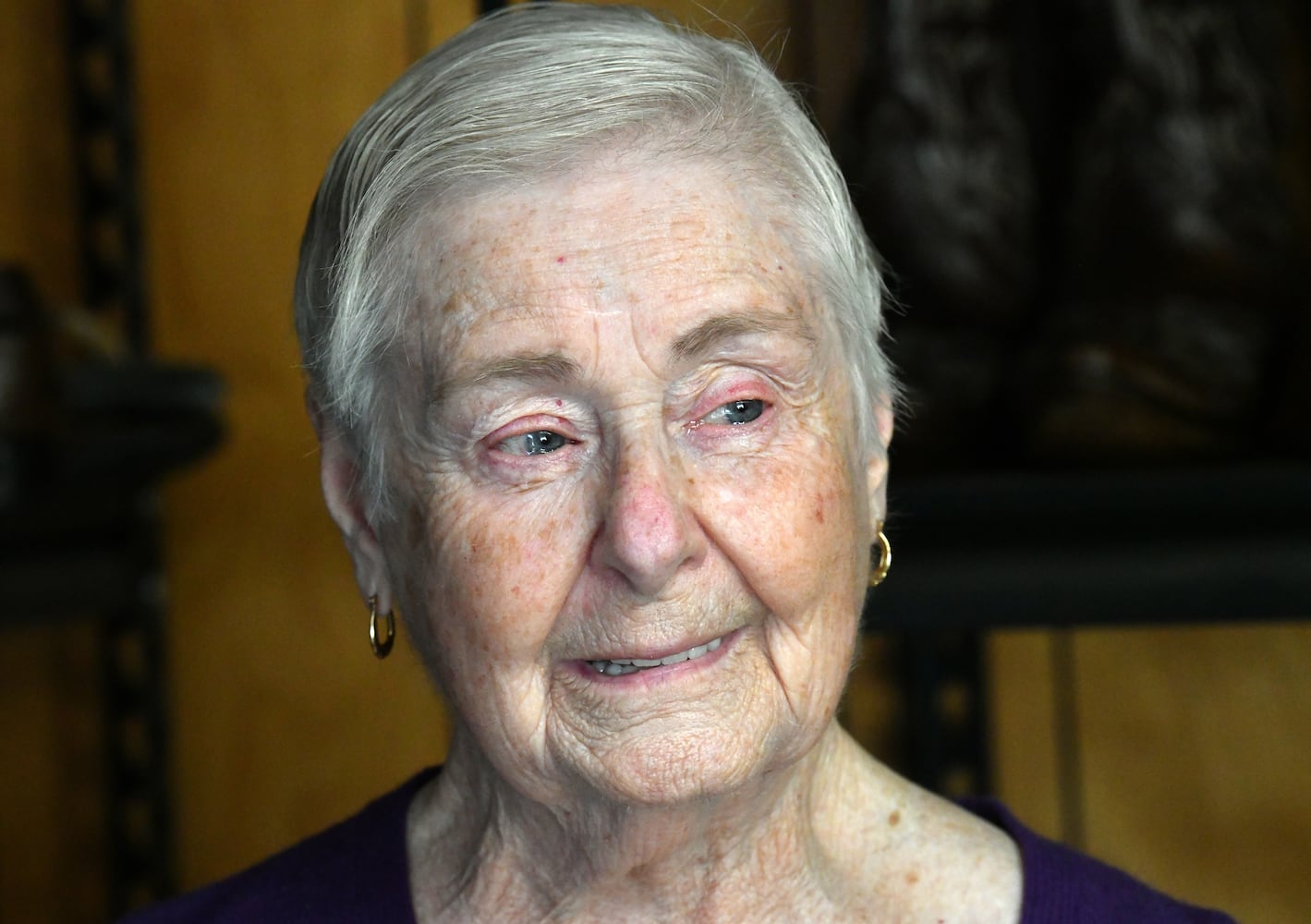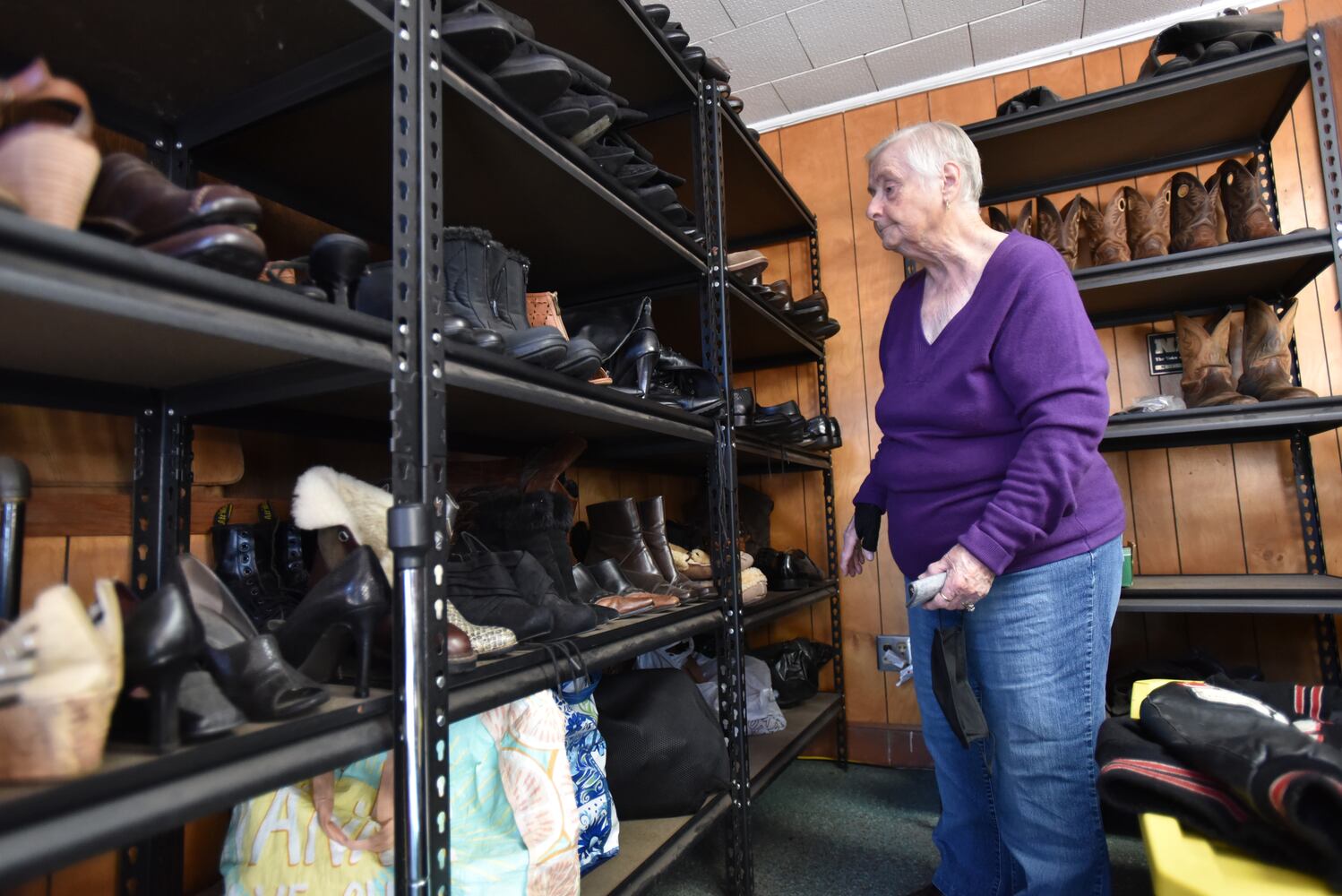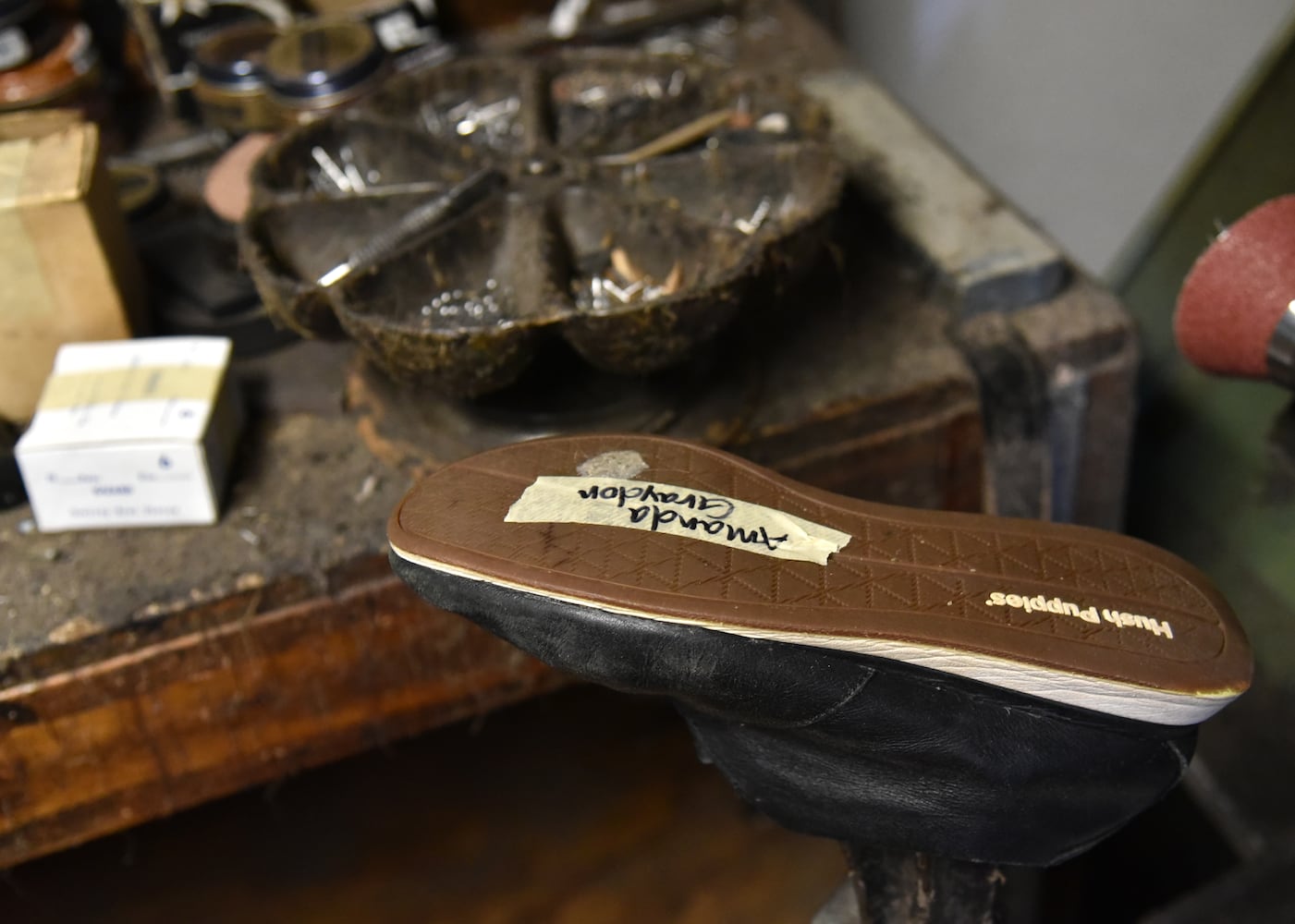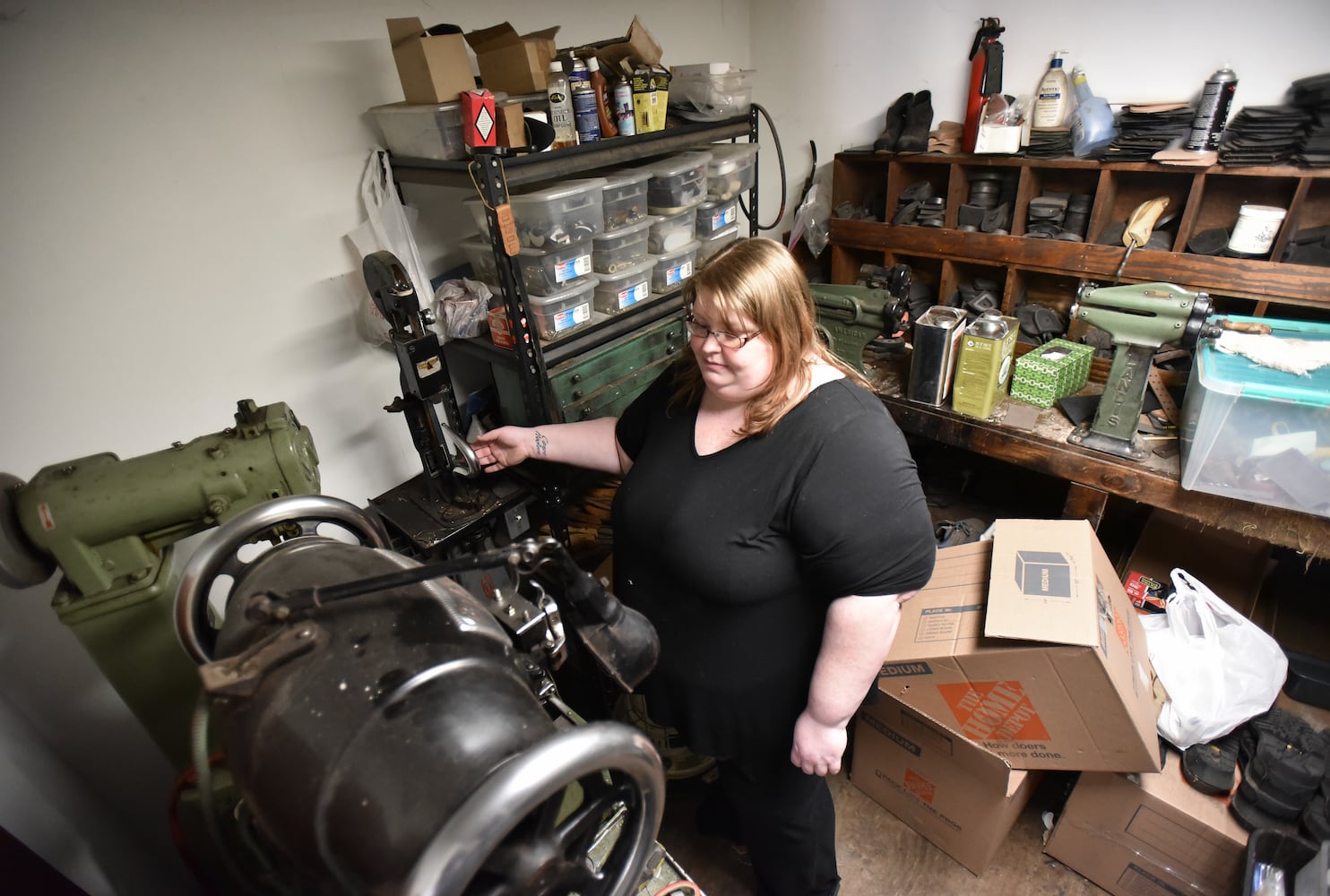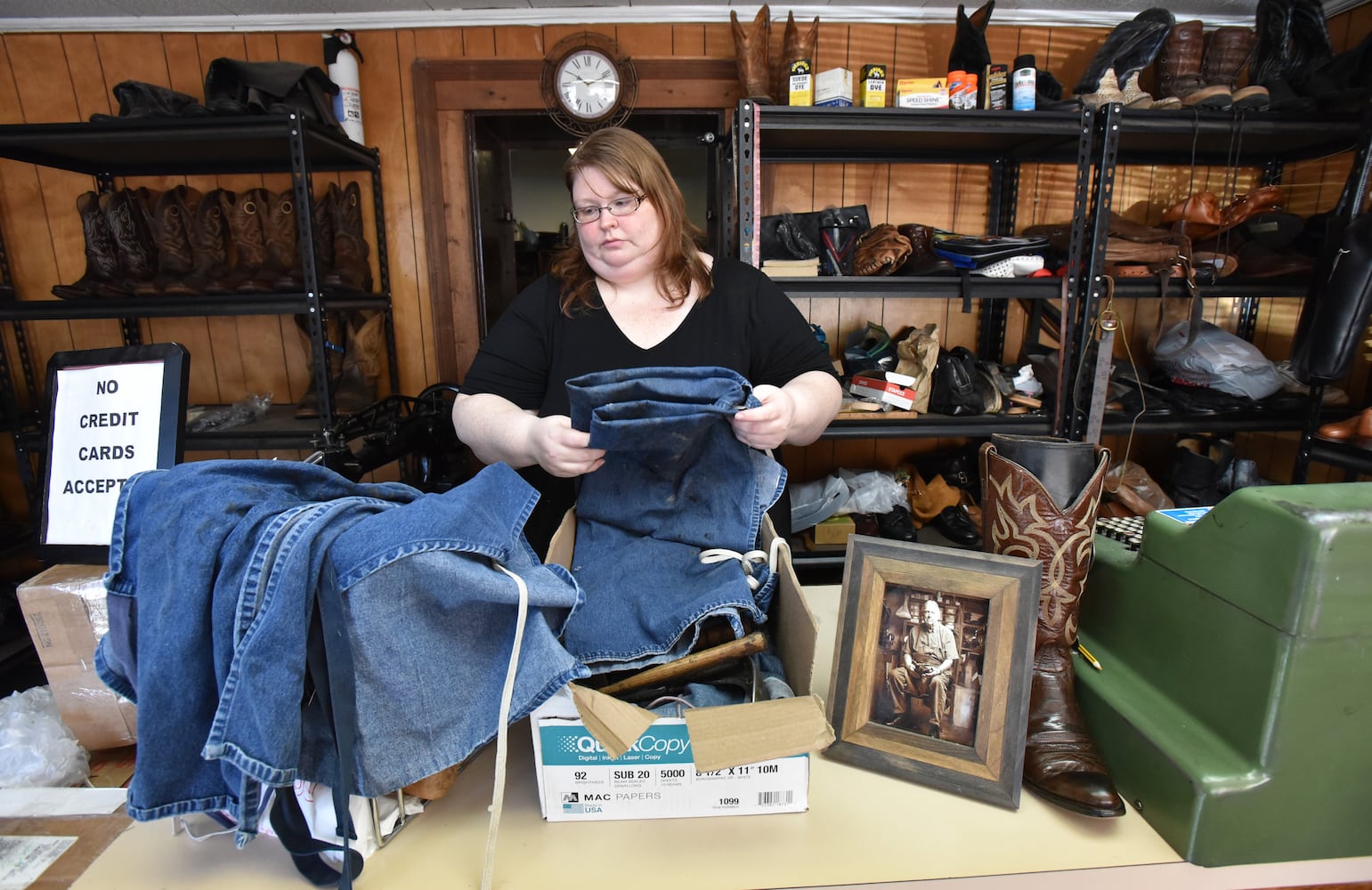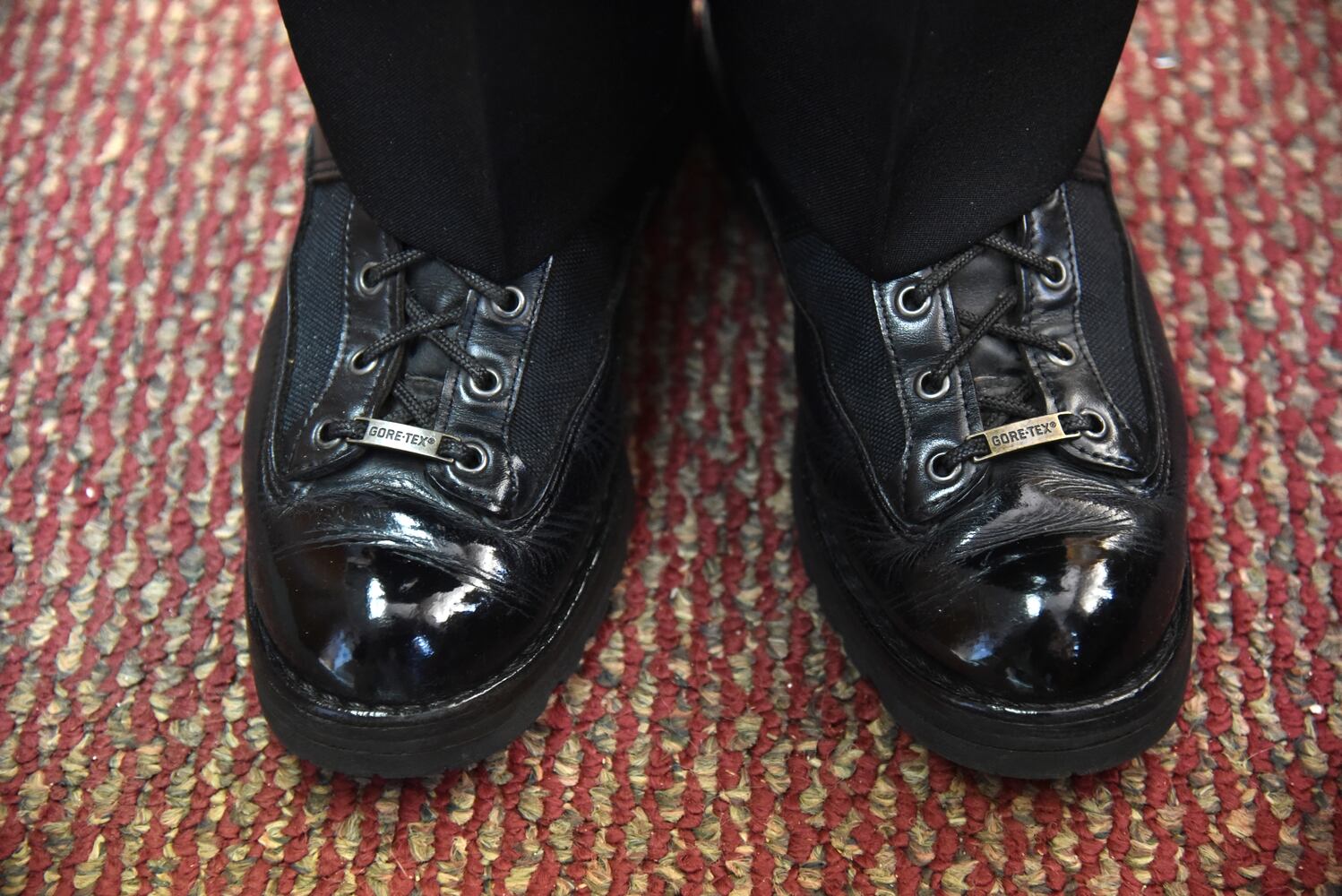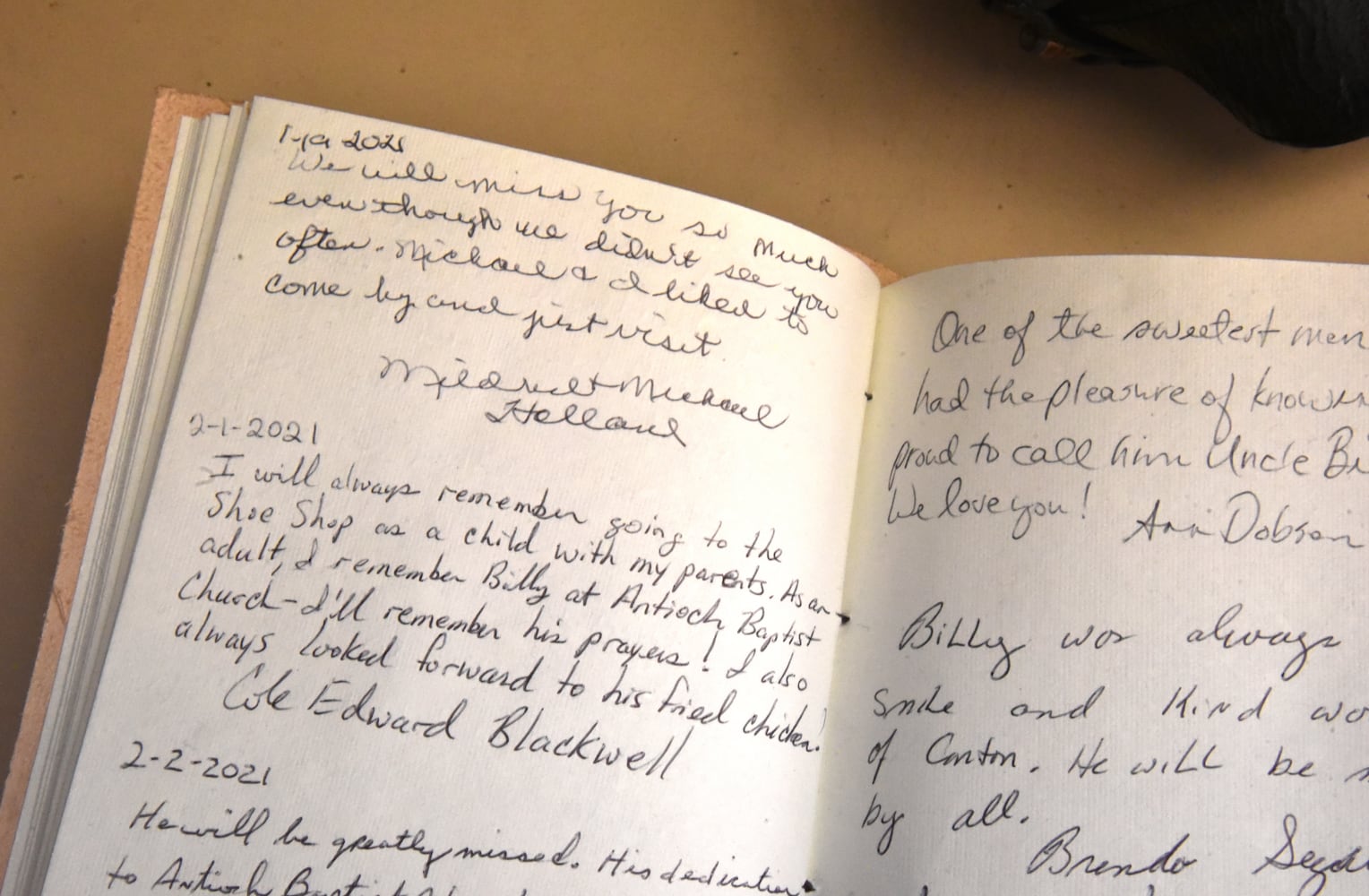Canton — In a tiny cobbler’s shop spilling out of what was once a bank vault, dozens of pairs of shoes have come to rest: leopard-print high heels, intricately designed cowboy boots, sensible slip-ons, shiny white tennis shoes, worn loafers, fancy wingtips and bright pink children’s sandals. Surely, some of them danced in spacious ballrooms, skipped along wooded trails, traveled to distant lands, amid all kinds of triumph and tragedy.
Maintaining a lonely vigil from behind an antique cash register, Brittany Morgan seeks to reunite them with their owners. Her late grandfather, Billy Eugene Moss, would have wanted it that way. He was the one who lovingly shined them, replaced their heels, reconnected them to their soles. Billy, 87, died from a combination of COVID-19, kidney failure and other causes last month.
Credit: HYOSUB SHIN / AJC
Credit: HYOSUB SHIN / AJC
The beloved cobbler operated his business here for more than six decades and had customers from across the country and even overseas. He is among more than 500,000 people in America who have been killed by the coronavirus disease. Roughly the size of Atlanta’s population, that total is more than the number of U.S. servicemembers who died in battle in the two world wars and the Korean and Vietnam wars combined.
Since last year, the outbreak has relentlessly claimed the lives of parents, spouses, siblings and children, many of them pillars of tight-knit communities like this one in North Georgia, where the pain is still raw. Billy’s friends used to gather at his Canton Shoe Repair shop just to talk. Now they are finding ways to fill the silence, remember his face, remember his grace, remember how he helped stitch them all together. Similar scenes are playing out across the nation as communities take stock of the pandemic’s grievous toll.
“It is a huge loss for the community. How many downtown areas have a shoe cobbler and have had one for six decades?” said Canton Mayor Bill Grant, who was one of Billy’s longtime customers. “It is really the loss of an era.”
Credit: J King Images
Credit: J King Images
The perfectionist
Billy was born in Talking Rock — a town some believe is named after the sound of water rushing over stones in Talking Rock Creek — during the Great Depression in 1933, the same year Prohibition ended in America and the movie “King Kong” premiered. The son of a dairy cattle farmer and a homemaker, he attended elementary school in Pickens County with his future wife, Ruth. The two sat together at the same desk. Early on, she said, they were “kind of sweet on each other.”
Red-headed, Billy stood 6′2, a full foot taller than Ruth. He had a subtle smile, a strong work ethic and a generous heart. Billy often mowed other people’s lawns. He gave away the vegetables he grew in his own garden. And he charged his customers far too little for the work he did on their shoes. When Ruth asked him why he didn’t bill them for more, Billy replied, “Everybody has got to live.”
For a time, Billy worked at a corduroy factory in Canton before it burned in 1955. Later, he learned shoe repair from his brother-in-law. Eventually, he took over the family business, moving it several times in Canton until finally settling in the first floor of a former bank building, a block from the courthouse square, where crews are filming the new “Hawkeye” Marvel superhero series for Disney Plus.
Credit: Family photo
Credit: Family photo
Billy did much of his work in a walk-in closet-sized room jam-packed with sanders, smoothers and stacks of rubber soles. His workbench prominently features a vintage pot encrusted with hundreds of strands of honey-like adhesive he used to mend shoes.
Billy sewed patches on high school letterman jackets, repaired women’s handbags, fixed ballet shoes, shaped special soles for disabled people and crafted leather knife holsters and dog collars. His versatility is evident in the items scattered about his store: An equestrian’s black leather half chap, a pair of giant green and blue pool toys shaped like tropical fish, a lawman’s gun belt studded with bullets and a weathered “Tex-Siz-Trap” catcher’s mitt.
Sometimes, Billy told customers he did not have the equipment to fix the odd items they brought in. But as they turned on their heels, he urged them to leave their cherished items behind, saying he would see what he could do. Some people brought in things just to challenge him. He somehow prevailed. Ruth credits his perfectionism, something she saw up close while working alongside him.
“I would put the buckle on or I would sew the elastic back together. And he would say, ‘That’s fine.’ And then he would look at it to be sure that I had done it right before he let it out,” she said. “And he didn’t do that because it was me. He would have done it because of anybody.”
Credit: HYOSUB SHIN / AJC
Credit: HYOSUB SHIN / AJC
Breaking the news to them
People continue reading rave reviews about Billy and seeking him out at his shop, hugging their damaged shoes to their chests, unaware he is gone. Brittany, his granddaughter gently breaks the news to them.
“Hello. How are you?” she asked from behind the counter as Dawn Conley stepped into the store recently. “You are not bringing in shoes to get fixed, are you?”
Cradling a pair of women’s shoes in her arms, Dawn replied: “Are you moving?”
Brittany: “No, he passed away.”
“I’m sorry,” Dawn said as she turned to leave. “I’m so sorry.”
Credit: HYOSUB SHIN / AJC
Credit: HYOSUB SHIN / AJC
Brittany and her grandmother are now weighing what to do with the shop and everything inside it. Neither is prepared to keep it running. Billy didn’t have an apprentice, they said, because he was too busy with his customers to train anyone. So Brittany is spending Tuesdays and Thursdays at the store, helping customers retrieve their items. She plans to keep at it through the middle of March. Through social media, the city has helped get the word out about her efforts.
As Brittany waited at the shop one day, Brian Venable arrived to pick up a colleague’s boots. Billy resoled Brian’s own black Danner Acadia boots at least four times. The Cherokee County sheriff’s deputy has worn them continuously for 10 years, walking thousands of miles in them and attending his kids’ lacrosse games, wrestling matches and track meets with them on. Brian is an avid leatherworker, so he and Billy were kindred spirits.
“I was always fascinated with the craftsmanship. Having my hands deep into it, I know what it takes to be able to do it. Not everybody can do it,” Brian said.
“I appreciated what he had always done. I work at the courthouse just right across the street, so I would come over from time to time… and we would talk leather and shoes. He was just a great guy.”
Credit: HYOSUB SHIN / AJC
Credit: HYOSUB SHIN / AJC
Moments earlier, Cathy Griggs arrived to pick up her black patent leather Bandolino heels. She left them with Billy to replace the heels about three months ago. Then she and her husband got sick with COVID-19. They lost their sense of taste and smell, felt fatigued and slept a lot. It took them weeks to recover. Cathy brightened when she saw her heels sitting on Billy’s shelf. The wife of a Baptist pastor, she has worn them to church services, funerals and baptisms across the Atlanta region.
“My favorites. Yes. Yes. Yes. Thank you, Lord Jesus,” she exclaimed as Brittany plucked them off the shelf. “They are very comfortable, too, for an old woman.”
The retired health care worker said she cried when she learned Billy was gone. He repaired her shoes for years.
“He was an angel,” she said. “I hate it so bad.”
Credit: HYOSUB SHIN / AJC
Credit: HYOSUB SHIN / AJC
‘I am going to be all right’
In the months before his death, Billy considered retiring but was reluctant because he loved his customers and worried what they would do without him. Late last year, he began forgetting things. A stroke and a kidney infection followed. He slept more than usual, suffered from disorientation and complained he had lost his sense of taste and smell.
Billy was hospitalized and then moved into a nursing and rehabilitation center in Canton, where he tested positive for COVID-19. Eventually, he was moved to a hospice in Cumming. Near death, Billy glanced at Ruth, his wife of nearly 70 years, and told her: “I am going to be all right.”
Ruth responded, “Yes, you are because the Lord is with you.”
He died Jan. 29.
Billy’s decades of hard work showed in his hands. Rough, they were often stained with shoe polish, grease and glue. He worried about them as he dressed to go to church. The funeral home cleaned them for his open-casket service. For Brittany, her grandfather’s hands did not look right so “pristine.” She wondered if someone could get some shoe polish and restore them to how she remembered them.
Dozens of mourners showed up for his funeral at Antioch Baptist Church in Talking Rock, where he served as a deacon and where generations of his family are buried, including his only child, Chris, who died at age 50 in 2014. Billy was dedicated to that church. Many of those who visited to honor Billy wrote in a guestbook about their fond recollections of his shop.
“My favorite memories of Billy were going into the shoe shop and just chatting,” one of them wrote. “He fixed many shoes for me and sewed patches on my letter jacket. Billy was a sweet, sweet man.”
A second wrote: “Sometimes he would charge me $1. The last time I was in the shop, he didn’t charge me for the work. When I was leaving, he said to me, ‘Come back.’”
Credit: HYOSUB SHIN / AJC
Credit: HYOSUB SHIN / AJC
About the Author
Keep Reading
The Latest
Featured
